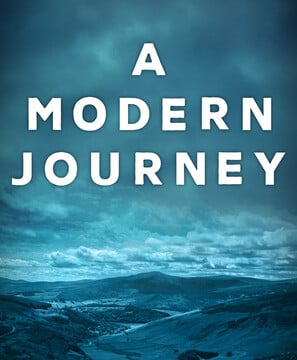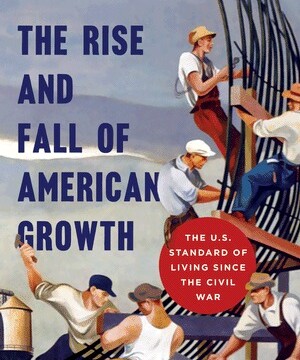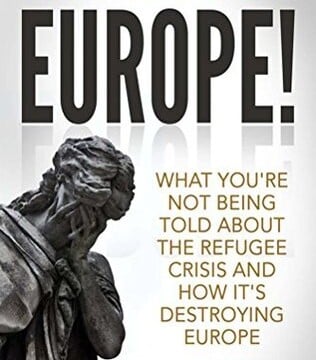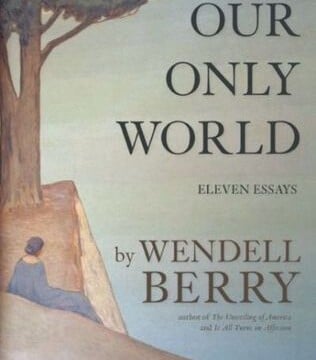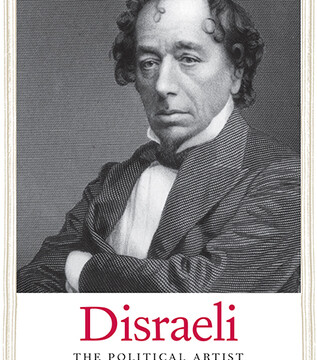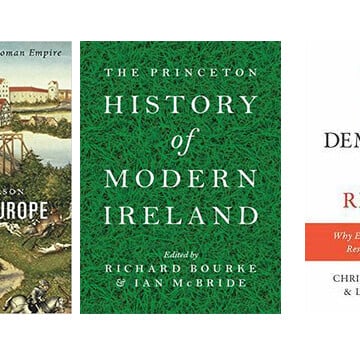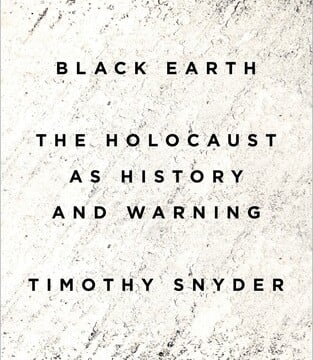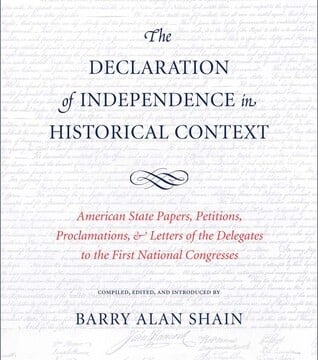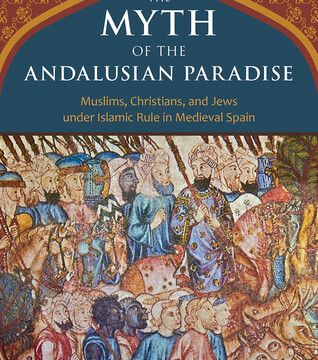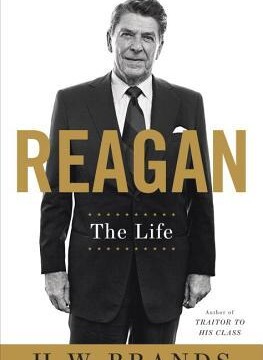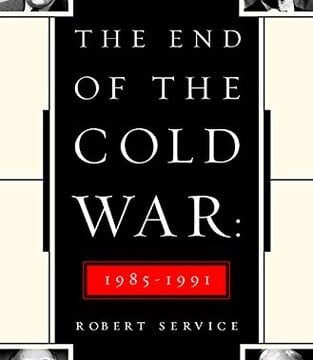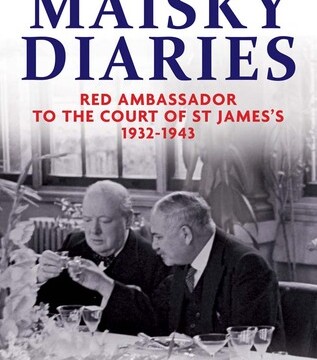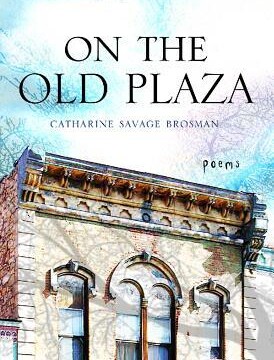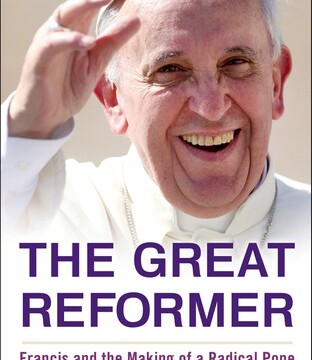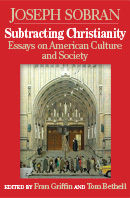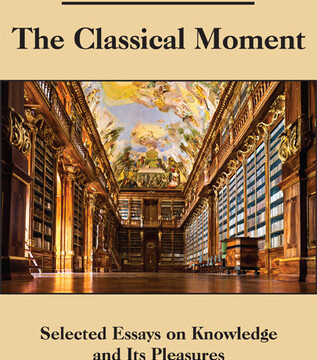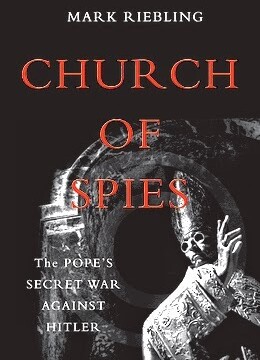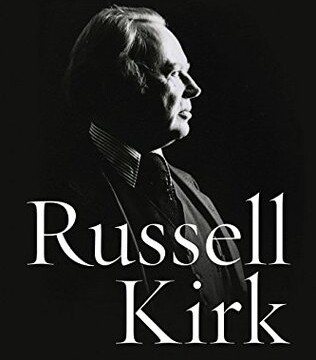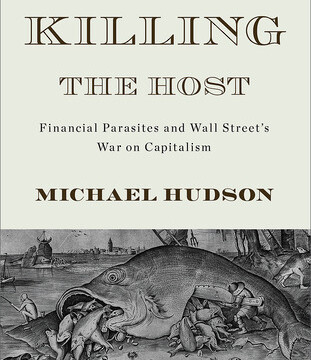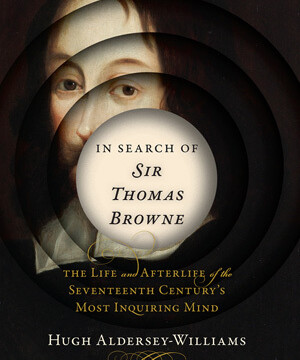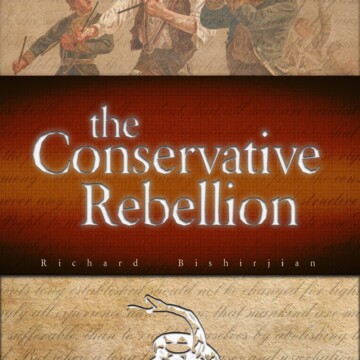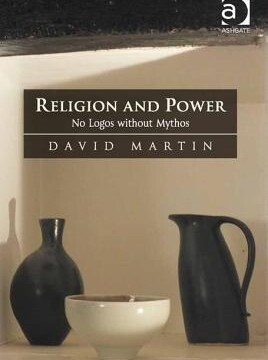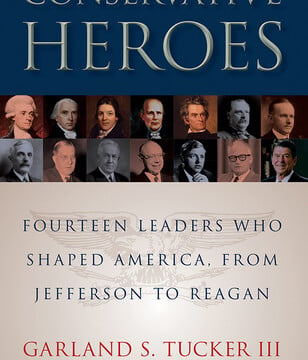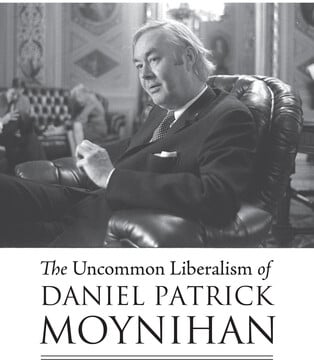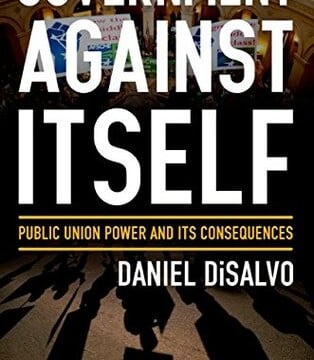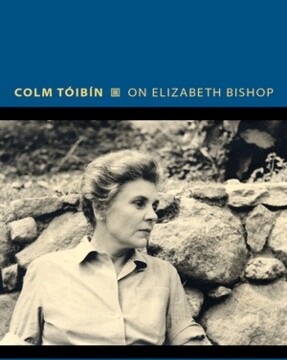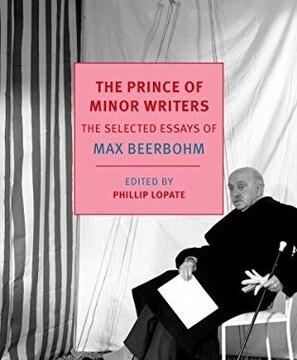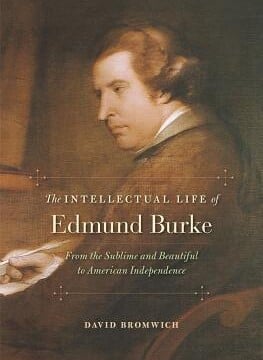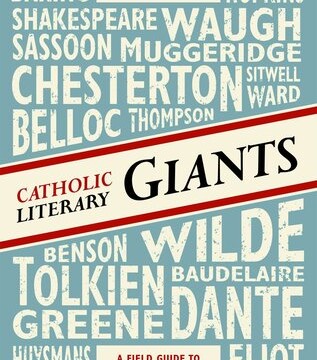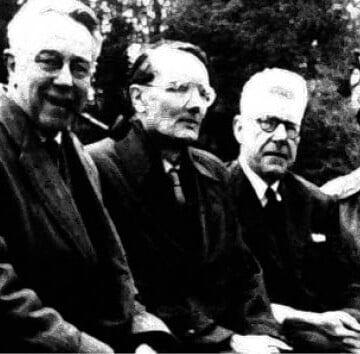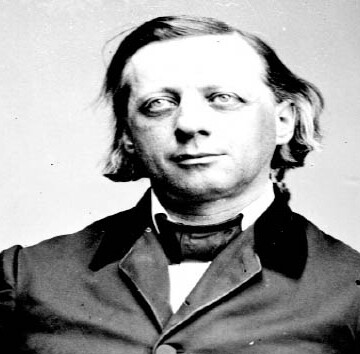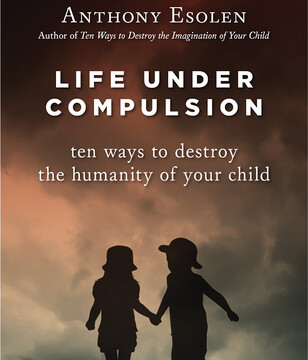In important ways, a revolutionary process has begun. So argues Ilana Mercer in the best extended analysis yet published of the Trump phenomenon: “Trump is getting an atrophied political system to oscillate” in “an oddly marvelous uprising.” For us revolutionaries there is still a long way to go, but we are entitled to a “modest...
Category: Reviews
Holy Among Fools
In his latest novel, Derek Turner, author of Sea Changes and Displacement, takes his readers on a seriocomic journey with a latter-day Holy Fool. Along the way, Turner takes aim at the insanity of political correctness, celebrity culture in the Age of Twitter, and the spiritual wasteland that results from a denial of truth. A...
Books in Brief
John Quincy Adams: Militant Spirit, by James Traub (New York: Basic Books, 620 pp., $45.00). This well-written and highly readable biography, addressed to the general reader rather than to the academic historian, is nevertheless a substantial as well as a highly accessible work by a professor of foreign policy at New York University. Traub’s presentation...
Twilight of the Gods
Robert Gordon occupies the Stanley G. Harris Chair of Social Sciences at Northwestern University and is the author of a number of works on economic growth, productivity, and unemployment. His present book has been eagerly awaited, owing to the publication of two “working papers” in 2010 and 2012 by the National Board of Economic Growth—papers...
The Empire Strikes Back
This is a brilliant and disturbing book. Its opening sentence is “Europe is doomed.” If you think that this is simply colorful rhetoric, read on. Hasta la Vista Europe is not alarmist; it is alarming, making its case in great detail ranging over many issues and countries. The pseudonymous author represents a number of researchers...
What the Editors Are Reading
Two years ago, while we were visiting friends in Tuscany 20 or so kilometers north of Florence, my host remarked that it was in those parts that Giovanni Boccaccio composed the Decameron, the first draft of which he completed in 1351. The Decameron was one of many books I’d thought for years to read, without...
What the Editors Are Reading
About once a year I return to the works of my old friend Edward Abbey, the Jeffersonian environmentalist, who died in 1989 at the age of 62. Unlike the modern environmentalist, who is typically an urban chair-sitter, fundraiser, and postdemocratic politician, Ed Abbey was the real thing as well as a fine writer, competent equally...
Books in Brief
The Life of Louis XVI, by John Hardman (New Haven, CT, and London: Yale University Press, 499 pp., $29.00). This sympathetic, indeed deeply moving, biography of the ill-fated king is dramatic and mostly well written, save in certain instances where I found the presentation of particular events (such as the controversy at the immediate start...
A Reluctant Revolutionary
Wendell Berry is a Democrat, pacifist, and critic of organized religion. Add to this the fact that he is a writer whose work has proved compelling to many conservatives, and he becomes a bit mysterious. At times Berry himself has seemed somewhat bemused by the cultural conservatives who frequently promote his work. Once we consider...
The Romantic Tory
President Nixon lamented in 1969 to his urban-affairs advisor, Daniel Patrick Moynihan, that there was a dearth of poetry in the White House and had the former professor draw up a list of books for him to read. Nixon soon became enthralled with the 1966 classic biography of Disraeli by Robert Blake. The book was...
Openings and Closings
Raphael Israeli examines one of the most difficult political problems of our time: The conflict between the Israelis and the Palestinians. He approaches the subject by presenting and analyzing research on the conflict by earlier Israeli historians (the so-called Old Historians), by more recent Israeli historians (the so-called New Historians who coined the label Old...
Books in Brief
Heart of Europe: A History of the Holy Roman Empire, by Peter H. Wilson (Cambridge, MA: Belknap/Harvard, 942 pp., $39.95). Professor Wilson of Oxford University argues that the history of the Sanctum Imperium Romanum, despite its centrality to the history of Europe and its immense longevity (it lasted for more than a millennium, twice as...
What the Editors Are Reading
As usual, there are too many books on my reading table. As I continue with Les Trois Mousquetaires,which gets better with every page, I’m also finishing La parabola di Giobbe, a work of Christology (among other things) by David Maria Turoldo, a very holy man heavily inspired by Teilhard de Chardin, in whose own work...
Iron Lady on Her Mettle
At the end of the first volume of Charles Moore’s lapidary trilogy, we left Mrs. Thatcher standing in St. Paul’s Cathedral in 1982, surrounded by the shades of past national leaders, bathed in public approval and growing global respect as the victor of the Falklands War and standard-bearer for a new and dynamic kind of...
Dealing With Hitler
Black Earth: The Holocaust as History and Warning has received exceptional attention and nearly universal praise. Prof. Timothy Snyder’s knowledge of the holocaust is almost encyclopedic. This is his second large book devoted to the horrible history of much of Eastern Europe during World War II. His main inquiry and subject is what happened to...
What the Editors Are Reading
A recent story in the British press about Sir Peregrine Worsthorne, the English author, journalist, and broadcaster, in retirement at the age of 92, prompted me to order one of his books, Democracy Needs Aristocracy, first published in 2004. It is an excellent work, and one I wish I’d consulted when I was working up...
The New French Resistance
Philippe de Villiers, a French entrepreneur, politician, and author, belongs to what one might call the New French Resistance, a group of contemporary French patriots for whom Paris, not Vichy, symbolizes treason against both the French Republic and the historic French nation. Descended from an aristocratic family in the Vendée, Villiers is the founder and...
Books in Brief
The English and Their History, by Robert Tombs (New York: Knopf; 1,024 pp., $45.00). This superb, and superbly readable, book is a model of historical writing for a general readership, outstanding for its concision, clarity, and even-handedness. The strong narrative component easily accommodates a tremendous amount of detail without ever becoming weighed down by it,...
Leaping Short
Martin Hacklett is English. He lives in London. His father, who used to work on the Thames, has been unemployed for 15 years. His elder brother has been in and out of prison. School consisted of the usual encounters with bullies and institutional indifference, and now he’s working as a bicycle courier, weaving his way...
The Declaration Now—and Then
In 1996, Barry Alan Shain published his Myth of American Individualism: The Protestant Origins of American Political Thought. It was a book that should have shaken professional conservatism to its foundations. At the time Patrick J. Buchanan was a standard-bearer for an America bound by a common cultural and religious tradition and was being resisted...
What the Editors Are Reading
Asked by a Lutheran-pastor friend to recommend some fiction for summer reading, I immediately thought of Ole Rølvaag’s trilogy. I’d been thinking about revisiting these novels for some time, as questions surrounding the just and humane treatment of immigrants and immigration to the United States have swirled around in my head. How does immigration change...
A Myth Demolished
Over the past two decades a great chasm has opened up between the tenured American professoriate specializing in the humanities and social sciences, and the meaningful discussion of its subjects in the public arena. It is hard to find a recent work by an academic authority on social, historical, and cultural anthropology in general, or...
Easy Sell
Twice a finalist for the Pulitzer, H.W. Brands, in Reagan: The Life, describes the 40th president as a conservative Franklin Roosevelt. What Roosevelt was to the “first half of the twentieth century, Reagan was to the second half.” The description occurs with enough frequency to become a recurring theme. A short chapter at the book’s...
The Crucial Years
The evidence of the end of the Cold War around 1990 was clearer than evidence of its beginning had been around, say, 1947. By “Cold War” we mean the conflict between the United States and the Soviet Union—not that between the United States and China, which was the outcome of civil war in the latter...
Books in Brief
Open Every Door: Mary Mottley-Mme. Marie de Tocqueville, by Sheila Le Sueur, translated by Claudine Martin-Yurth (Mesa, AZ: Dandelion Books, 340 pp., $26.95). Alexis de Tocqueville’s wife was Mary Mottley, an Englishwoman. His biographers have never written more than a couple of sentences about her. This is regrettable because Mary was an extraordinary woman, because...
Between Fear and Conceit
H.M. Maisky was the Soviet ambassador to Britain from 1932 to 1943. In June 1943 Stalin ordered him to quit London. After returning to Moscow, Maisky was posted henceforth to unimportant positions. In 1953 he was imprisoned; two years later he was released. He died in 1955. In London (and from time to time in...
The Price of Being Human
In her tenth volume of poetry, Catharine Savage Brosman has given readers a wide array of skillfully written and insightful poems that capture the poet’s keen observations of nature, her journeys from New Mexico to Antarctica, and her sense of humor and wit. Framed by travel adventures in the United States and a series of...
A Real Place
Breathes there the man, with soul so dead, Who never to himself hath said, This is my own, my native land! —Sir Walter Scott This work reminds me, on an appropriately more modest scale, of John Lukacs’s book on Philadelphians. Both hearken back to a time when Americans were a semicivilized people who lived in...
The Modern Papacy
For many, Pope Francis is still a puzzlement, to use the words of the song from that great musical The King and I. If you are among those puzzled, this is the book you’ve been waiting for. The Great Reformer presents the man, the experiences that shaped him, and his responses to those experiences with...
Sui Generis
The present volume, out last fall from the Fitzgerald Griffin Foundation, is as welcome as its predecessor, Joseph Sobran: The National Review Years, published in 2012. For the new collection, the editors have selected columns, articles, and essays drawn from across the spectrum of Sobran’s outlets, including the Universal Press Syndicate and Griffin Internet Syndicate,...
Timely, and Timeless
Reading James Schall is like talking to James Schall. About a decade ago, when I knew intimately the meaning of US ARMY (“Uncle Sam Ain’t Released Me Yet!”) and orders deployed me for a week downrange to Washington, D.C., and its environs, I contacted Father Schall, and we agreed to meet at the best place...
The Chief and His Men
On June 1, 1945, Pope Pius XII met for three hours in private audience with his co-conspirator, the German lawyer Josef Müller. “I had hardly crossed the threshold into his study when the Holy Father approached me, and embraced me,” Müller later wrote. “The Pope said,” writes the author of this remarkable tale of spiritual...
A Christian Humanist
Having access to personal correspondence and other private papers is every biographer’s dream, a potential difference between a decent biography and a great biography. In the case of Russell Kirk, the advantage was huge. Kirk maintained a “massive—in some ways, beyond comprehension—correspondence” over the course of a prolific life in letters. For example, Bradley Birzer,...
It’s the Debt, Stupid
A distinguished and liberal economic historian, Prof. Michael Hudson has laid bare the secret of the present American dilemma—why we suffer a declining and artificial economy and a widening chasm between the rich and the rest. The interest-collecting rich absorb ever more of the national income. “Instead of creating a mutually beneficial symbiosis with the...
Kidnapped
This book was first published in England as The Adventures of Sir Thomas Browne in the 21st Century. Neither title describes the book very accurately. It is really an extended meditation on Browne’s life and interests as they strike a 21st-century science writer who likes to ride a bicycle and who, like Browne, lives in...
With Friends Like These
The elegantly titled Iron Wall is a perfect example of how a necessary book on an important topic can be rendered inadequate by the author’s all-consuming bias. In the Preface to this immense volume, Avi Shlaim, a retired professor at Oxford and a fellow of the British Academy, describes his well-connected family as Iraqi “Arab”...
Of Paradigms and Penectomies
“Conservatives engage in rebellions, not revolutions.” How true, and what a way to begin a book. The Conservative Rebellion is part memoir, part intellectual and political history by a scholar who came of age in the revolutionary 1960’s, when fashionable people viewed rebels as Parliament viewed the Boston Minutemen. (King George III, however, considered George...
Religion Is Always There
The varied and complex relations between religion and power can be understood only by means of extensive comparisons, between nations and across time. Who better to demonstrate this than Prof. David Martin, the doyen of the comparative sociology of religion? Martin’s first achievement is to refute “the general theory of secularisation,” which has enjoyed so...
Flame of Hope
The 21st century has not so far been a happy time for American conservatives. It began with an appalling terrorist attack whose key perpetrators had taken advantage of our government’s insouciance toward mass immigration from the Third World. Instead of reversing the trend toward demographic transformation, the authorities doubled down on it: We now accept...
Remembering Moynihan
Daniel Patrick Moynihan (1927-2003) was the most substantial intellectual to reach high political office in the United States since Woodrow Wilson. Thus his life, writings, policy deliberations, and political efforts, and the effects of these, deserve the most careful and respectful attention. If the apocalyptic era of European history began with the outbreak of World...
Electing Your Own Boss
Until the late 1950’s and early 60’s, the deal for government employees was that they were paid less than similar private-sector workers but got excellent benefits, especially strong pensions and almost absolute job security. And although some government workers belonged to associations, they did not have collective-bargaining rights. The deal was a fairly good one. ...
Truth in Poetry
Elizabeth Bishop (1911-79) is considered to be among the most important American poets of the 20th century. She was a U.S. Poet Laureate and won a Pulitzer Prize, a National Book Award, and the Neustadt International Prize. Her collection Questions of Travel (1965) may be the best known. Perhaps her literary reputation outpaces her true...
Democracy in Action
James Webb, a genuine war hero and author of a worthy book (Fields of Fire) draws no interest as a Presidential candidate, but numerous Republicans who have never been anything but parasites and cannot even read, much less write a good book, are considered promising statesmen. I am told we must be a multicultural country....
What the Editors Are Reading
Having written the book on Bill Bryson (literally—for Marshall Cavendish’s Today’s Writers & Their Works series, 2010), I have been looking forward to the film version of A Walk in the Woods (1998) since I first read Bryson’s semifictionalized account of hiking the Appalachian Trail. Robert Redford, who produced the movie and stars as a...
The Incomparable Max
Sir Max Beerbohm, 1872–1956, was a famous caricaturist with a style very much his own. He was a successful author, too, though not a prolific one: a book of stories (Seven Men), a set of parodies (A Christmas Garland), and one fantasy novel (Zuleika Dobson) make up the sum of his output for most people. ...
Boundaries
On a flank of the White Mountains not far from the Maine state line lies a small New Hampshire town called Albany, population 735. Every seven years, town officials arrange for a surveyor to walk the boundaries of the town, clearing brush, cleaning up markers, and checking to see whether a neighboring, larger town might...
Beautiful Apologetics
Art and literature are powerful mediums to convey timeless truths. In the Introduction to Catholic Literary Giants, Joseph Pearce declares the power of art to evangelize, a defense of the Catholic Faith he terms the “apologetics of beauty.” He cites Dante, Shakespeare, Hopkins, Tolkien, and Waugh as a Catholic’s literary “weapons” to wield against the...
More Than an Inkling
“Every great man nowadays has his disciples,” wrote Oscar Wilde, “and it is always Judas who writes the biography.” Even conceding that Wilde was writing for effect, it is nonetheless true that biographers often betray their subjects with either a kiss or a curse, and that the kiss is sometimes more deadly than the curse. ...
The Union as It Was
A minority on the left is possibly willing to admit that a few “good Southerners” during the War Between the States opposed slavery, secession, and the Confederacy. Probably a much smaller minority would concede that a considerable number of Northerners opposed the war either to preserve the Union or to free the slaves. That, in...
Mechanical Nihilism
This is a book about life in a society from which higher goods have been expelled, leaving no place for love, wonder, or beauty. The “compulsion” of the title is that which guides people in such a setting. In default of anything better, people fall under the dominion of itches, obsessions, and impositions, and mistake...

